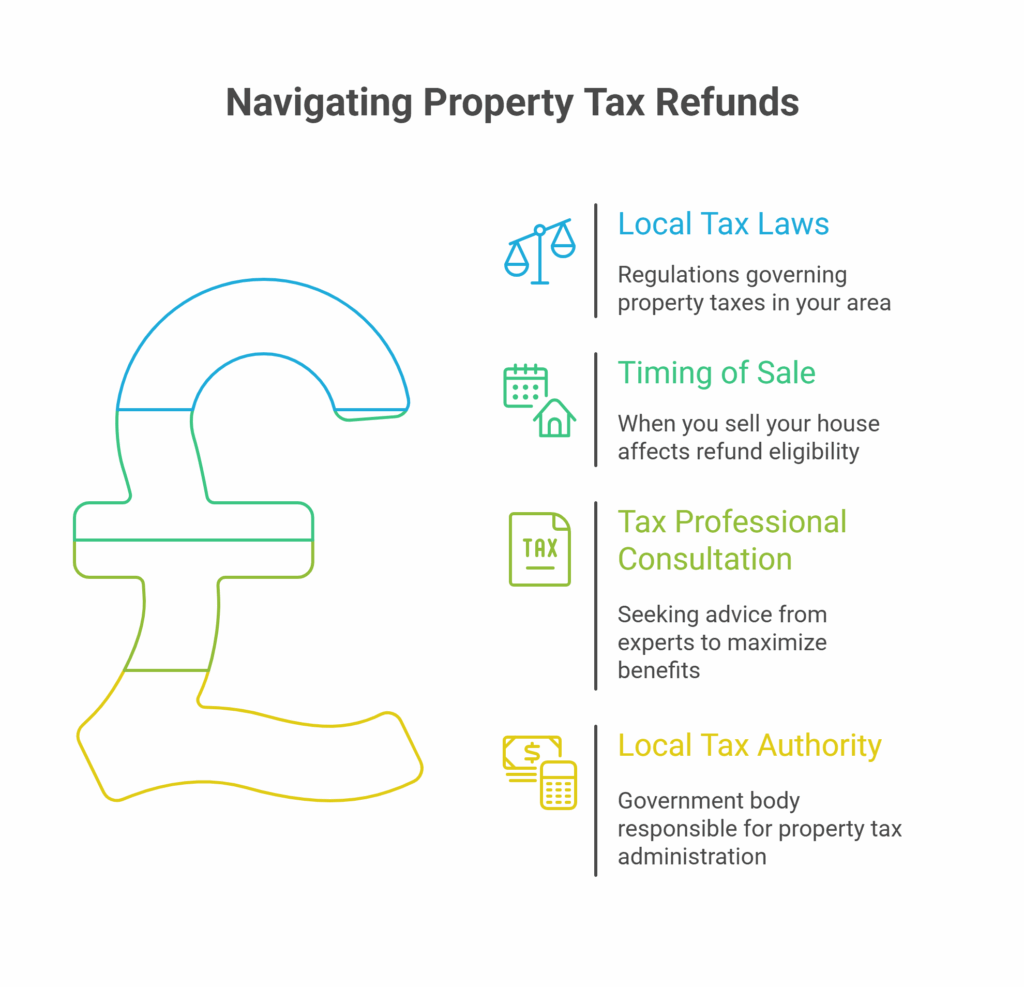Quick Answer: Do You Get a Property Tax Refund When You Sell Your House?
Do You Get a Property Tax Refund When You Sell Your House? The short answer is yes, but it depends on timing. Property taxes are usually paid in advance or prorated at closing, meaning if you’ve already paid for months you won’t own the home, the buyer typically reimburses you for that portion.
This adjustment happens during settlement, so instead of a traditional “refund check,” you’ll see it as a credit on your closing statement. Local rules and tax schedules vary, so it’s smart to confirm with your real estate agent or closing attorney how it applies in your case.
Now let’s dive deeper.

Understanding Property Taxes When Selling a House
Property taxes are assessed on real estate by local governments and are usually paid annually or semi-annually. These taxes fund essential services like schools, public safety, and infrastructure maintenance. However, when you sell your home, the distribution of property tax responsibility can change, leading to potential refunds or additional payments.
Do You Get a Property Tax Refund When You Sell Your House?
The question “Do you get a property tax refund when you sell your house?” often arises because property taxes are typically paid in advance or in arrears. Here’s what you need to know:
1. Prorated Property Taxes at Closing
When selling a home, property taxes are prorated between the buyer and the seller based on the closing date. If you have already paid property taxes for the full year but sell the house before the year is over, you may be entitled to a refund for the portion of the year you no longer own the property. This refund is usually issued at closing as part of the final settlement.
On the other hand, if property taxes in your area are paid in arrears (meaning for the previous year), you may owe taxes at closing rather than receiving a refund. The exact amount depends on the agreement between the buyer and seller.
2. Overpaid Property Taxes
In some cases, homeowners overpay their property taxes due to escrow miscalculations or changes in assessed property value. If this happens and you sell your home, you may be eligible for a refund. The refund process varies by municipality, so it’s essential to check with your local tax assessor’s office.
3. Mortgage Escrow Account Refunds
If your mortgage lender collects property taxes through an escrow account, there’s a chance that you have excess funds in the account at the time of sale. After closing, your lender will review the account and issue a refund for any remaining balance. This is another way sellers can receive a property tax refund when selling a house.
Steps to Determine If You Get a Property Tax Refund When You Sell Your House
To find out whether you will receive a property tax refund when selling your home, follow these steps:
- Review Your Property Tax Payment History – Check whether property taxes are paid in advance or arrears in your locality.
- Consult Your Settlement Statement – This document, provided at closing, outlines prorated property taxes and potential refunds.
- Contact Your Mortgage Lender – If you have an escrow account, confirm whether you will receive an escrow balance refund.
- Check With Your Local Tax Office – If you believe you overpaid taxes, inquire about refund eligibility and the claim process.
Tax Considerations When Selling a House
Aside from potential property tax refunds, there are other tax-related factors to keep in mind when selling a home:
Capital Gains Tax
If your home has appreciated in value since purchase, you may be subject to capital gains tax. However, the IRS allows homeowners to exclude up to $250,000 (or $500,000 for married couples) of capital gains from taxation if they meet the primary residence requirements.
Transfer Taxes and Fees
Some states or municipalities charge transfer taxes when a home is sold. These fees can impact the overall tax considerations in a home sale but do not typically result in a refund.
What to Do If You Believe You Are Owed a Refund?
If you suspect you are entitled to a property tax refund when selling your home, take the following actions:
- Request a Tax Statement – Obtain a detailed tax payment history from your local tax assessor.
- Contact Your Closing Agent – Ask about how property tax proration was handled at closing.
- Reach Out to Your Mortgage Servicer – If you paid taxes through escrow, ensure a refund is processed promptly.
- File a Refund Claim – If applicable, submit a refund request to your local tax authority following their specific procedures.
Final Thoughts
So, do you get a property tax refund when you sell your house? The answer depends on how property taxes were paid, whether you overpaid, and how funds were managed through escrow. In many cases, sellers do receive refunds, either at closing or through their mortgage escrow account. If you’re thinking, “How do I sell my house fast El Paso Texas?“, it’s important to also consider how property taxes will be handled. To ensure you receive any refund due, review your tax records, settlement statement, and lender’s escrow account carefully.
By understanding how property taxes are handled when selling a home, especially in competitive markets like El Paso, you can maximize your financial returns and avoid any unexpected costs. Always consult with a real estate professional or tax advisor for personalized guidance on property tax refunds and home sales.
Call us anytime at 713-561-5162 or connect with us on our website and we’ll lay out all of your options for your specific situation.
